The Shared Passion, Better Future series that started last year is about helping farmers by highlighting changes and new opportunities. It is not just for the short-term, but is focused on planning for the long-term success of your business.
What has changed in your farming business in the last year? What changes are going to happen that will impact the options you take in the next 12 months?
Despite what some say, change is always happening. Farmers often don’t realise the potential of small, incremental changes in the industry over time. Think back 10 years or even five years to see the changes that have been made. It is most obvious in technology. Change will only accelerate.
When we started the second series in June, we looked back on the last 12 months to identify what had changed. The main changes are shown in the panel on Page 37.
We talked to many of the farmers featured in the first series 12 months ago. There were farmers in partnerships either with family, neighbours or where a young farmer had started working with an older one stepping back. We revisited tillage share farming arrangements as well.
While they were happy with the direction their businesses were heading in, many talked about the obstacles that were still in the way. Uncertainty of individual impact of CAP reform was definitely one holding back older farmers in particular from making decisions.
The main changes over last 12 months
Much closer to the removal of milk quotas – just over seven months left.Irish CAP reform decisions have made the way forward much clearer – but implementation is still holding back some farmers’ decisions. Taxation review was established, forcing the Departments of Finance and Agriculture, as well as farm organisations, to re-look at what was needed to facilitate much-needed change.Land mobility service established, which is bringing farmers together.Contract rearing becoming more common. Work being progressed to introduce share milking. Income and profitability of dry stock and tillage sectors dropped. What we want to see over next 12 months
Taxation review to open up way for increased land mobility, as well as easier succession planning and ability to grow a business.Department of Agriculture to implement partnerships without major restrictions. Implementation of Irish CAP reform decisions so that the way is completely clear for farmers to make decisions. Farmers to learn new skills to deal with life after removal of milk quotas. Land mobility service to continue as independent ‘match-making’ body on a countrywide basis.Contract rearing and partnerships to become more commonplace. Share milking to be successfully introduced and working well in Ireland.Succession planning a core issue
Succession planning is one of the core issues that we targeted again this year. We know that succession planning and inheritance can be very hard conversations to have on many farms.
With the help of Succession Ireland’s Clare O’Keeffe, we again showed examples of how families are benefiting by sitting down, talking and then putting a plan in place. One thing we clearly identified this year is that succession planning and actually handing over the reins are two very different things.
It was great to see how the O’Briens in Limerick were developing a cheese business, which highlighted the potential of the family working together to build a generational business.
The two sides of the story about how Tim and Katherine O’Leary were handing over to their son Colm highlighted many of the issues. Those pieces got a lot of reaction, especially from young farmers who were frustrated that their own parents were not stepping back quickly enough.
Of course, every situation is different. Money is a major issue, as the farm has to continue to support two incomes. However, the retiring farmer’s pride and self-worth were also raised as issues that needed to be taken into account.
In many cases, it was the lack of a clearly-defined handover that was causing a lot of the friction.
It was with interest that we saw IFA propose a progression model in which there would be a defined, phased transfer of the family farm over a set time period of up to 10 years.
It would require an agreed transfer contract where both parent and child (or niece/nephew) would work together in partnership over the period of the transfer of assets.
As an incentive to the parents or any farm owner to enter into the contract, they would receive tax relief on a portion of their farm income, up to an agreed ceiling.
Within the first two years of entering the partnership agreement, no phased transfer would occur. The reason is that the two-year period would allow both sides to assess and evaluate their appetite for the following stages. The IFA also said no phased transfer would occur prior to the older partner reaching 55 years of age, or a “stipulated date”.
The period during which the phased transfer will take place is then a maximum of eight years, but with agreement between both sides.
Each year, 10% of the interest in the lands owned by the older partner and farmed by the partnership, together with the same percentage of the assets and liabilities of the partnership, would be transferred.
The older partners would always have the option to retain up to 20% of land and partnership value. The 20% retention option is rightly to satisfy the older partner’s security concerns at the start of the phased transfer.
In many family farm businesses, a transfer is postponed due to the lack of income. The development of a workable partnership structure would potentially enhance overall income, effectively growing the overall cake to be shared out.
Part of the arrangement should be that the partnership sets a plan, as in many cases additional investment would be needed for expansion and working capital. This will need extra loans that have to be repaid.
In most family transfer situations, the family settlements payable by the farm successor must be met from after-tax income. This is a substantial burden.
To minimise this impact, IFA propose that partnership profits attributable to the older partners should be exempt from income tax up to agreed ceilings per partner.
The amount of tax-relieved income available should be inversely linked to the length of the contract period – a good idea that is being looked at under the ongoing tax review.
It is a definitely an interesting concept that shows how innovative thinking can tackle a problem that has long hindered many family farms. Teagasc is looking to help farmers to tackle the succession planning issue. They are set to run 11 ‘Transferring the Family Farm’ clinics across the country, starting in September.
The clinics give families the opportunity to consult with teams of professionals to assist you in creating an effective succession plan for your family.
The clinics are run twice a day in each of the 11 venues (see www.teagasc.ie/events/2014/20140909.asp) at 10.30am and 2pm. As each person can have an individual timeslot with the different professionals, pre-booking is essential (www.eventbrite.ie).
September
Tues 9, Co Cavan.Thurs 11, Co Kerry.Fri 12, Co Meath.Thurs 18, Co Clare.Tues 30, Co Waterford.October
Wed 1, Co Cork.Fri 3, Co Cork.Mon 6, Co Tipperary.Tues 7, Co Mayo.Wed 8, Co Donegal.Tues 14, Roscommon.Looking forward
The next major step will be to see how the way is opened in the coming months by the upcoming agri-taxation review. It will set the landscape for critical issues like land mobility, inheritance, succession planning and many others issues that will impact on the decisions farmers make and the direction the industry goes. With initiative, positive thinking and an open mind, there are huge possibilities for farming in Ireland. Increased global food demand offers the chance to earn a good living from land farmed profitably. Finally, we would like to thank all the farmers and their families who featured on these pages for the series. They are certainly playing their part in helping to facilitate change. Thanks to the input from Clare O’Keeffe, Succession Ireland, Austin Finn, Macra’s land mobility service, and Tom Curran, Teagasc, who has just taken over the baton from Ben Roche, who has been so instrumental in developing partnerships in Ireland. Thanks for all your comments and feedback. A change of mindset in Irish farming continues to develop. The seeds have been sown. As we said last year, we can develop it ourselves and embrace the benefits, or let it be imposed on us. Our future is in our own hands.
John, Galway
We discussed contract rearing at a recent discussion group meeting and I thought a lot of the members were too quick to knock it as an option. The ability of a person to rear heifers well was a major potential stumbling point. Obviously, this is crucial and the skill needed will depend on when the heifers arrive on farm. However, if a farmer is interested in contract rearing, I think he/she is being progressive and a look at their current stock and grass will quickly indicate the rearer’s skill.
Joanne, Laois
Succession is an issue on every farm. When it’s done right with open communication, then it is wonderful to see the farm being passed onto the next generation. When it goes wrong, close families stop talking. In my experience, it’s not the size of the farm but the people involved. I know families who have successfully transferred 200ac and others who fell out over 20ac. The phrase “fair isn’t always equal” stands out. Having an open talk and deciding what’s fair across the family is crucial.
Michael, Louth
To me, the family farm is Ireland’s greatest strength and weakness at the same time. Where you have a family working together to achieve a common goal, with each person contributing their own skills, then you have a fantastic business model, as outlined by the O’Briens from Limerick. But where you have a family consumed by the belief that only their family can farm the land, then you have stagnation. We need to push past previous stigmas around land ownership to achieve better land use. I think the Macra land mobility service has great potential.
If others see people using the service and benefiting, then we could see a lot of positive change to Irish farming.
Donal, Cork
Share farming and partnerships have to become a common part of Irish agriculture in the future. We don’t have to change who owns land, but if we can start using it better then everyone can benefit. The alternatives if we don’t are scary – the single farm payment is being reduced for many farmers every year and the profitability of many farms currently is not good. Having the courage to try a different farming arrangement or farm with someone else isn’t easy, but this series has shown that if you find the right person, you are onto a winner.
The Shared Passion, Better Future series that started last year is about helping farmers by highlighting changes and new opportunities. It is not just for the short-term, but is focused on planning for the long-term success of your business.
What has changed in your farming business in the last year? What changes are going to happen that will impact the options you take in the next 12 months?
Despite what some say, change is always happening. Farmers often don’t realise the potential of small, incremental changes in the industry over time. Think back 10 years or even five years to see the changes that have been made. It is most obvious in technology. Change will only accelerate.
When we started the second series in June, we looked back on the last 12 months to identify what had changed. The main changes are shown in the panel on Page 37.
We talked to many of the farmers featured in the first series 12 months ago. There were farmers in partnerships either with family, neighbours or where a young farmer had started working with an older one stepping back. We revisited tillage share farming arrangements as well.
While they were happy with the direction their businesses were heading in, many talked about the obstacles that were still in the way. Uncertainty of individual impact of CAP reform was definitely one holding back older farmers in particular from making decisions.
The main changes over last 12 months
Much closer to the removal of milk quotas – just over seven months left.Irish CAP reform decisions have made the way forward much clearer – but implementation is still holding back some farmers’ decisions. Taxation review was established, forcing the Departments of Finance and Agriculture, as well as farm organisations, to re-look at what was needed to facilitate much-needed change.Land mobility service established, which is bringing farmers together.Contract rearing becoming more common. Work being progressed to introduce share milking. Income and profitability of dry stock and tillage sectors dropped. What we want to see over next 12 months
Taxation review to open up way for increased land mobility, as well as easier succession planning and ability to grow a business.Department of Agriculture to implement partnerships without major restrictions. Implementation of Irish CAP reform decisions so that the way is completely clear for farmers to make decisions. Farmers to learn new skills to deal with life after removal of milk quotas. Land mobility service to continue as independent ‘match-making’ body on a countrywide basis.Contract rearing and partnerships to become more commonplace. Share milking to be successfully introduced and working well in Ireland.Succession planning a core issue
Succession planning is one of the core issues that we targeted again this year. We know that succession planning and inheritance can be very hard conversations to have on many farms.
With the help of Succession Ireland’s Clare O’Keeffe, we again showed examples of how families are benefiting by sitting down, talking and then putting a plan in place. One thing we clearly identified this year is that succession planning and actually handing over the reins are two very different things.
It was great to see how the O’Briens in Limerick were developing a cheese business, which highlighted the potential of the family working together to build a generational business.
The two sides of the story about how Tim and Katherine O’Leary were handing over to their son Colm highlighted many of the issues. Those pieces got a lot of reaction, especially from young farmers who were frustrated that their own parents were not stepping back quickly enough.
Of course, every situation is different. Money is a major issue, as the farm has to continue to support two incomes. However, the retiring farmer’s pride and self-worth were also raised as issues that needed to be taken into account.
In many cases, it was the lack of a clearly-defined handover that was causing a lot of the friction.
It was with interest that we saw IFA propose a progression model in which there would be a defined, phased transfer of the family farm over a set time period of up to 10 years.
It would require an agreed transfer contract where both parent and child (or niece/nephew) would work together in partnership over the period of the transfer of assets.
As an incentive to the parents or any farm owner to enter into the contract, they would receive tax relief on a portion of their farm income, up to an agreed ceiling.
Within the first two years of entering the partnership agreement, no phased transfer would occur. The reason is that the two-year period would allow both sides to assess and evaluate their appetite for the following stages. The IFA also said no phased transfer would occur prior to the older partner reaching 55 years of age, or a “stipulated date”.
The period during which the phased transfer will take place is then a maximum of eight years, but with agreement between both sides.
Each year, 10% of the interest in the lands owned by the older partner and farmed by the partnership, together with the same percentage of the assets and liabilities of the partnership, would be transferred.
The older partners would always have the option to retain up to 20% of land and partnership value. The 20% retention option is rightly to satisfy the older partner’s security concerns at the start of the phased transfer.
In many family farm businesses, a transfer is postponed due to the lack of income. The development of a workable partnership structure would potentially enhance overall income, effectively growing the overall cake to be shared out.
Part of the arrangement should be that the partnership sets a plan, as in many cases additional investment would be needed for expansion and working capital. This will need extra loans that have to be repaid.
In most family transfer situations, the family settlements payable by the farm successor must be met from after-tax income. This is a substantial burden.
To minimise this impact, IFA propose that partnership profits attributable to the older partners should be exempt from income tax up to agreed ceilings per partner.
The amount of tax-relieved income available should be inversely linked to the length of the contract period – a good idea that is being looked at under the ongoing tax review.
It is a definitely an interesting concept that shows how innovative thinking can tackle a problem that has long hindered many family farms. Teagasc is looking to help farmers to tackle the succession planning issue. They are set to run 11 ‘Transferring the Family Farm’ clinics across the country, starting in September.
The clinics give families the opportunity to consult with teams of professionals to assist you in creating an effective succession plan for your family.
The clinics are run twice a day in each of the 11 venues (see www.teagasc.ie/events/2014/20140909.asp) at 10.30am and 2pm. As each person can have an individual timeslot with the different professionals, pre-booking is essential (www.eventbrite.ie).
September
Tues 9, Co Cavan.Thurs 11, Co Kerry.Fri 12, Co Meath.Thurs 18, Co Clare.Tues 30, Co Waterford.October
Wed 1, Co Cork.Fri 3, Co Cork.Mon 6, Co Tipperary.Tues 7, Co Mayo.Wed 8, Co Donegal.Tues 14, Roscommon.Looking forward
The next major step will be to see how the way is opened in the coming months by the upcoming agri-taxation review. It will set the landscape for critical issues like land mobility, inheritance, succession planning and many others issues that will impact on the decisions farmers make and the direction the industry goes. With initiative, positive thinking and an open mind, there are huge possibilities for farming in Ireland. Increased global food demand offers the chance to earn a good living from land farmed profitably. Finally, we would like to thank all the farmers and their families who featured on these pages for the series. They are certainly playing their part in helping to facilitate change. Thanks to the input from Clare O’Keeffe, Succession Ireland, Austin Finn, Macra’s land mobility service, and Tom Curran, Teagasc, who has just taken over the baton from Ben Roche, who has been so instrumental in developing partnerships in Ireland. Thanks for all your comments and feedback. A change of mindset in Irish farming continues to develop. The seeds have been sown. As we said last year, we can develop it ourselves and embrace the benefits, or let it be imposed on us. Our future is in our own hands.
John, Galway
We discussed contract rearing at a recent discussion group meeting and I thought a lot of the members were too quick to knock it as an option. The ability of a person to rear heifers well was a major potential stumbling point. Obviously, this is crucial and the skill needed will depend on when the heifers arrive on farm. However, if a farmer is interested in contract rearing, I think he/she is being progressive and a look at their current stock and grass will quickly indicate the rearer’s skill.
Joanne, Laois
Succession is an issue on every farm. When it’s done right with open communication, then it is wonderful to see the farm being passed onto the next generation. When it goes wrong, close families stop talking. In my experience, it’s not the size of the farm but the people involved. I know families who have successfully transferred 200ac and others who fell out over 20ac. The phrase “fair isn’t always equal” stands out. Having an open talk and deciding what’s fair across the family is crucial.
Michael, Louth
To me, the family farm is Ireland’s greatest strength and weakness at the same time. Where you have a family working together to achieve a common goal, with each person contributing their own skills, then you have a fantastic business model, as outlined by the O’Briens from Limerick. But where you have a family consumed by the belief that only their family can farm the land, then you have stagnation. We need to push past previous stigmas around land ownership to achieve better land use. I think the Macra land mobility service has great potential.
If others see people using the service and benefiting, then we could see a lot of positive change to Irish farming.
Donal, Cork
Share farming and partnerships have to become a common part of Irish agriculture in the future. We don’t have to change who owns land, but if we can start using it better then everyone can benefit. The alternatives if we don’t are scary – the single farm payment is being reduced for many farmers every year and the profitability of many farms currently is not good. Having the courage to try a different farming arrangement or farm with someone else isn’t easy, but this series has shown that if you find the right person, you are onto a winner.



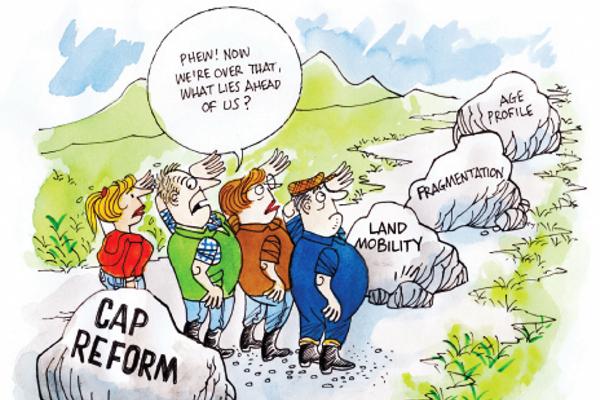

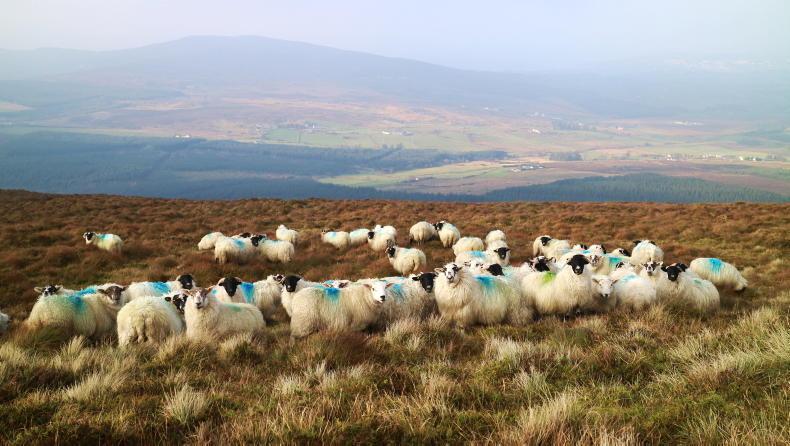

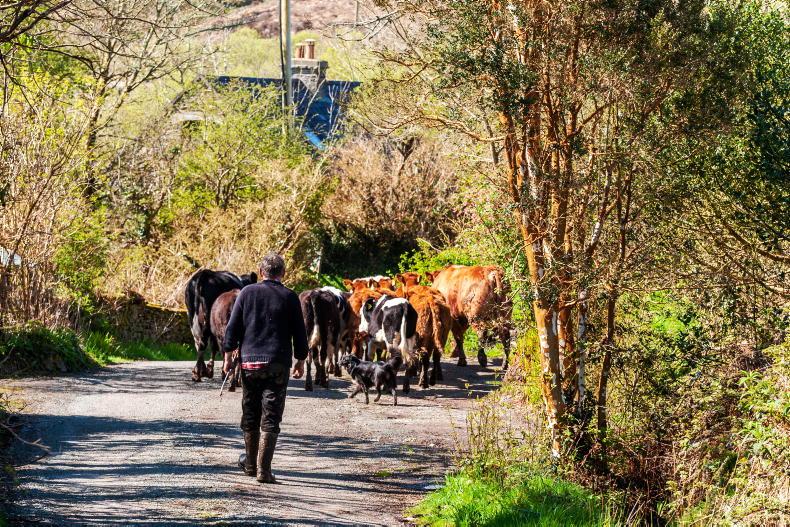
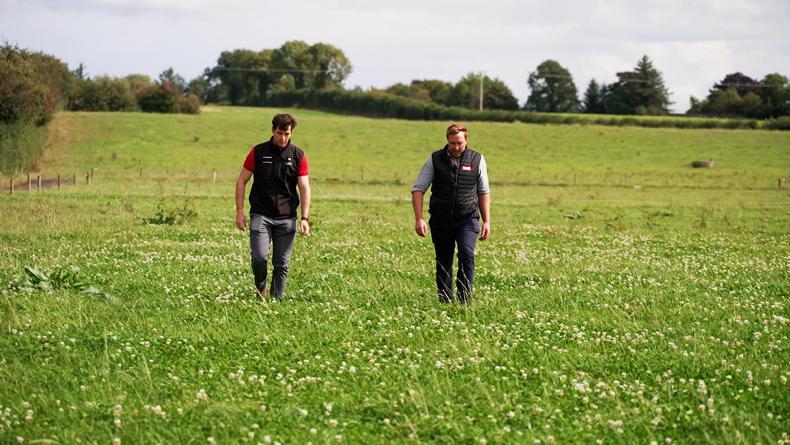
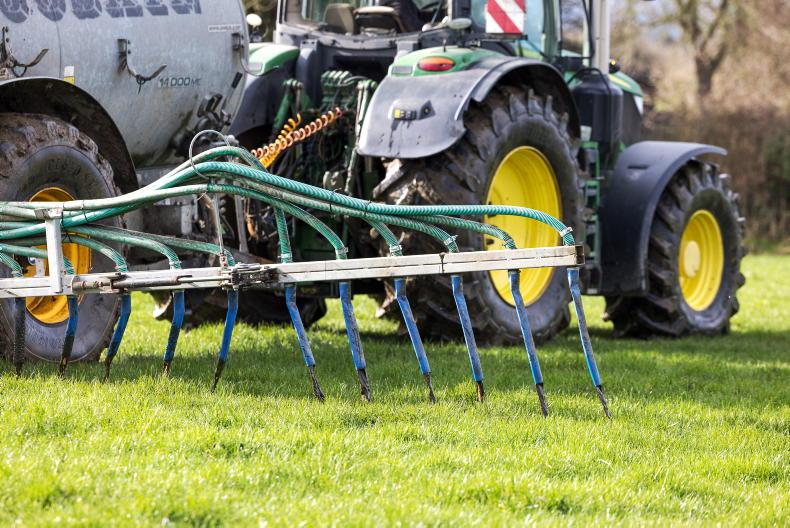
SHARING OPTIONS